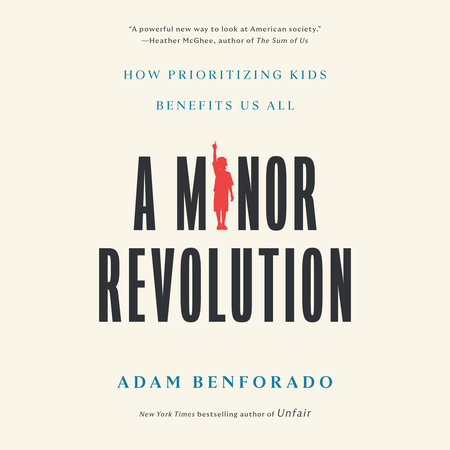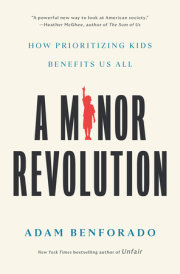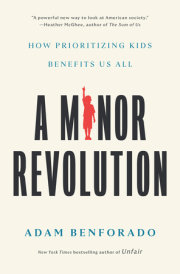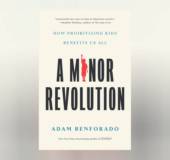Chapter 1
The First YearsThe Right to Attachment
The boy was put out with the chickens. He wasn’t yet two. The reasons remain hidden in the past. Sujit’s mother killed herself. His father was found stuffed in the trunk of a taxi. There is not anyone left to ask, though there were witnesses. In the rural village outside of Suva, Fiji, the neighbors noticed the boy from time to time, penned in the coop, underneath the house out of the sun, tied up with the hens. But, for years, he was left there.
When social workers finally intervened, Sujit was eight. He could not speak. And he didn’t move like a boy. He would hop, perch. When food was brought to him, he’d knock over the plate and peck at the meal on the floor. The sounds that emerged from his mouth were like bird calls. He didn’t want to sleep in the bed they made for him at the Samabula Old People’s Home. He set down to roost on the stone.
There are animals that do not require caregiving when they emerge into the world. Megapodes are like that. The stocky, chicken-like birds do not parent. They spend their days on themselves: stalking the wooded landscapes of the Pacific islands kicking up leaves in a search for centipedes, lizards, termites, shoots, and seeds. While most birds incubate their eggs with their own bodies, megapodes lay theirs inside warm mounds of decaying vegetation or in sand piles naturally heated by the sun. Their offspring dig themselves out when they are ready. The youngsters emerge with eyes open, able to run and forage. Within an hour, they can fly. They aren’t taught; they aren’t nurtured. Even in their first day of life, megapodes are completely independent, off to explore without mom or dad. One chick, only a few days old, was spotted flying twenty-five miles out at sea.
We are not like that. We need our people from the moment we are born. And when we do not have them—when we are denied those nurturing bonds—the consequences can be devastating and permanent. The tragic experiences of profoundly neglected children like Sujit—those locked in basements alone, forgotten in institutions, lost to regular human contact—reveal just how essential our human connectivity is for development.
That was not at all clear to experts a hundred years ago. As the Children’s Bureau’s 1914 publication
Infant Care exhorted, “The rule that parents should not play with the baby may seem hard, but it is without doubt a safe one.” The influential psychologist John Watson echoed the sentiment in his 1928 book
Psychological Care of Infant and Child: “Let [the child] learn to overcome difficulties almost from the moment of birth. . . . If your heart is too tender and you must watch the child, make yourself a peephole so that you can see it without being seen, or use a periscope . . . and, finally, learn not to talk in endearing and coddling terms.” Be a megapode parent, in other words.
It was not until the middle of the twentieth century that we began to rethink the value of detachment, prompted in large part by our primate relatives. While rhesus monkeys share roughly 93 percent of their DNA with humans and demonstrate similar behavior, they develop roughly four times faster. They can also be randomly assigned to particular early-life conditions in a controlled laboratory experiment. When, in the 1950s, Harry Harlow showed that orphaned baby monkeys preferred a terry cloth “surrogate” with cradled arms over a wire mother that offered milk but no surface to cling to, it suggested that we’d been overlooking something critical in early development: for primates, comfort might be a greater necessity than food. And in numerous subsequent experiments, we’ve gotten a picture of just how important parental attachment is to the life course.
In one recent study, researchers tracked generations of rhesus monkeys over three decades. When they were born, each monkey was either raised by its mother or placed in a nursery. The nursery conditions were designed to be enriching, with plenty of nourishment, human care whenever needed, and playtime with other baby monkeys—just no mom. At eight months, all monkeys were brought together and reared in identical conditions. Each generation that followed was subject to the same protocol.
What researchers found is that early-life attachment between a child and their mother yields significant health and social benefits, not simply to the child but to subsequent generations. Monkeys allowed to develop a strong attachment to their mothers and descended from a lineage of monkeys bonded to their moms had the best health and rose the highest up the monkey hierarchy as they aged. They had the strongest chance at securing the rhesus good life, as measured in access to choice food items and grooming from the most coveted partners. The intergenerational benefit of being from a line of mother-raised monkeys, though, didn’t accrue to those who were themselves reared in the nursery. As the authors concluded, “[P]arenting is the primary channel of intergenerational transmission of early-life advantage.” And if you’re denied that special bond at the very beginning, it doesn’t matter that things get better later. After just eight months, the monkeys were all treated the same, but they were indelibly, forever different.
Unfortunately, the research on human children paints the same picture. Young people deprived of nurturing attachments in the first years of life miss out on an essential basis for their healthy development intellectually, emotionally, socially, physically, behaviorally, and morally. Secure bonds are the foundation for learning about and exploring the new world. It is within these vital relationships that we gain our sense of self, how to navigate the social landscape, how to learn, how to trust, how to control ourselves, and how to love. The costs of isolation manifest in learning disabilities, interpersonal struggles, and poor physical and mental health decades into the future.
Seventy-six years ago, Dr. Benjamin Spock published
The Common Sense Book of Baby and Child Care, indelibly reshaping the way we raise our children. Though it is often described as the bible of child-rearing, it’s really more of a user’s manual: a how-to guide, marrying the logic of a Vulcan with a down-to-earth empathy. I was a Spock baby, as were my parents before me. Spock, a Yale-trained pediatrician, didn’t buy the conventional wisdom of his time that warned against excessive affection. He wanted parents who were involved with their kids. For him, the equation was simple: “Useful, well-adjusted citizens are the most valuable possessions a country has, and good . . . care during early childhood is the surest way to produce them.” But there was more standing in the way than the scowls of elderly neighbors who thought children were best neither heard nor seen. Indeed, in Spock’s view, the biggest problem was a quite modern development: the rise of families where both parents worked outside the home. While Spock couldn’t rise above the cringe-worthy sexism of his time, he recognized the fundamental dilemma that posed: “It doesn’t make sense to let mothers [or fathers!] go to work making dresses in a factory or tapping typewriters in an office, and have them pay other people to do a poorer job of bringing up their children.” As he reasoned, “It would save money in the end if the government paid a comfortable allowance to all mothers [and fathers] of young children who would otherwise be compelled to work.”
Today, we know that there are many positives that come from having parents successfully pursuing careers outside the home. But Spock’s core claim remains true: it makes sense for parents to spend more time with their kids, particularly when they are very young, and investing in giving parents time to do that makes sense for society.
Especially in the early years of life, the research is clear that greater parental investment makes a significant difference. Paid childcare leave is linked to reduced mortality and better health. With time off from work, women are able to breastfeed longer and infants get more one-on-one attention. Paid leave also supports parent-child bonding, which is associated with improved physical and cognitive development.
The benefits of increased parental involvement in early child-rearing appear to extend far into the future. When researchers looked at what happened after Norway changed its maternity leave policy to guarantee women four months of paid leave in 1977, they found that the increased time mothers spent with their kids correlated with reduced high school dropout rates and higher incomes at age thirty. The effects were largest for mothers who had the least education.
Part of the reason may be that early bonding promotes later connectedness between children and their parents. In one study of 1,319 mostly socioeconomically disadvantaged families, fathers who took two or more weeks of leave had children who, at age nine, reported greater closeness, communication, and engagement with their dad. And the children of engaged fathers demonstrate numerous advantages as they mature, from superior language development to more advanced social and cognitive skills.
Copyright © 2023 by Adam Benforado. All rights reserved. No part of this excerpt may be reproduced or reprinted without permission in writing from the publisher.












